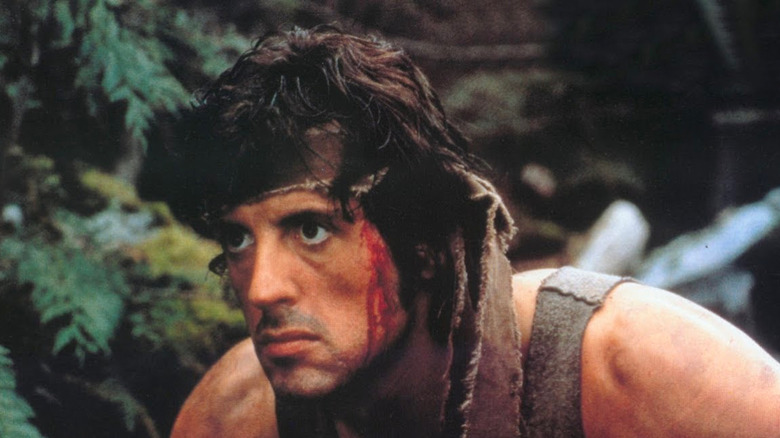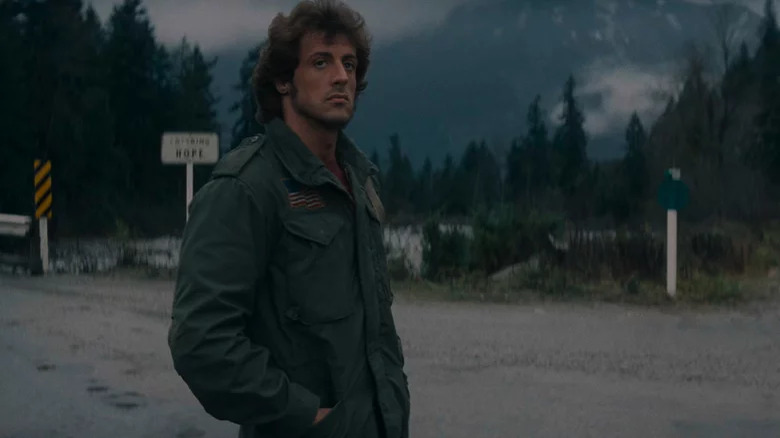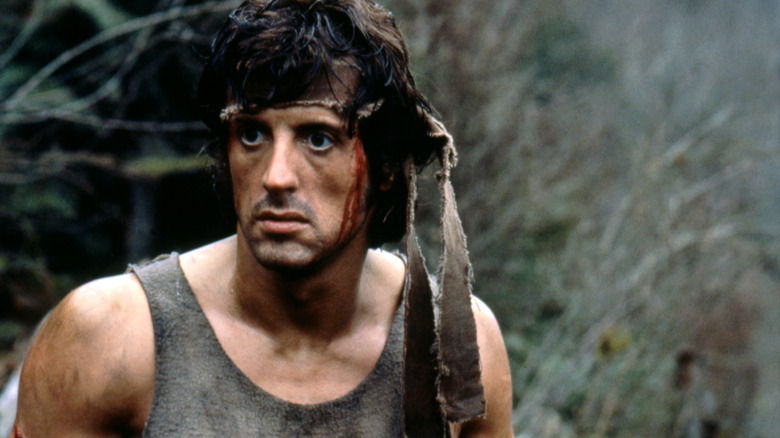
Sylvester Stallone arrived in Hollywood with a bang, literally. He wrote and starred in the 1976 film "Rocky," which won the Academy Award for Best Picture. On the heels of "Rocky" and two wildly successful sequels, Stallone pivoted beyond the boxing ring to the social problem film.
The decision was fortuitous for an already enormous action star. Few movie franchises can boast the success of Stallone's "Rambo." The name Rambo is firmly entrenched in U.S. popular culture, capturing the zeitgeist of 1980s action movies. It's a name that conjures images of explosions, machine guns, tactical knives, and that iconic red bandana. There are five films, a short-lived television series, and several video game iterations, all spawned from the 1982 film "First Blood."
Despite the enormous success of the franchise, its star and co-creator didn't expect it to happen that way. Rather, the first showing of "First Blood" left one of America's quintessential action heroes sick in an alleyway thinking his career might be over.
A Social Problem Film For The 1980s

"First Blood" is based on the 1972 novel of the same name by David Morrell about a homeless Vietnam veteran who wages a one-man war when running into trouble with law enforcement in a small town. A film adaptation of the book had been in development for ten years and when the project was finally brought to Stallone, he agreed to sign on if he could re-write the screenplay.
The original script had a more coldhearted John Rambo that goes on a PTSD-fueled killing spree. Stallone softened the protagonist, making him more sympathetic to the audience. If you look closely, you'll notice that John Rambo doesn't kill a single person in "First Blood."
The film worked as a hybrid social problem film, prompting The Hollywood Reporter to call John Rambo a relatively grounded character study, writing that when you think of Rambo:
"You don't, most likely, think of bitterness, or bleakness, or the unknowable and crippling sense of isolation too many soldiers experience on returning to civilian life after serving in combat. That's partly on you. It's also partly on, well, the Rambo movies that aren't 1982's 'Rambo: First Blood.'"
Despite the powerful script revisions, Stallone had no idea what would come next.
We Tried To Buy It Back And Burn The Negative

In a 2005 appearance on "The Howard Stern Show," Stallone was asked about the early success of "First Blood." Stallone shocked Stern by confessing he thought the movie might ruin his career. Stallone said:
"They went through every actor in the system and eventually said, 'OK De Niro, Nick Nolte, Zippy the Monkey, let's go to Sly' and I looked at this and I'm going, this is a career killer."
Stallone admitted that after seeing the movie for the first time both he and his manager "wretched together in the alley." They hated it so much that after the first viewing he and his manager tried to buy the film back and burn the negative. Stallone blamed the length and content of the movie, saying it was three hours long, half of which was him "chasing guys in the woods."
Stallone's suggestion to fix the film was to cut out all his dialogue, allowing other characters to fill in details about John Rambo, comparing the narrative device to a Greek chorus. The studio complied and the changes took the movie from three hours to 93 minutes. Audiences agreed, as "First Blood" grossed more than $125 million worldwide and created an action hero archetype for the 1980s and beyond.
Perhaps the most important change Stallone made to the script: It was the only version where Rambo survives. Without Stallone's involvement, "First Blood" would have also been the last.
Read this next: The 18 Best Action Movie Actors Ranked
The post Why Sylvester Stallone Initially Thought First Blood Would Ruin His Career appeared first on /Film.
0 Comments